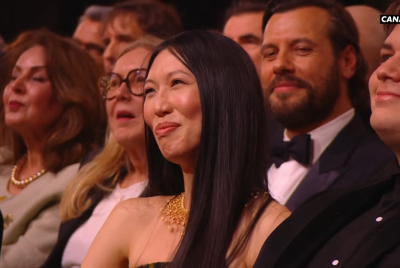Luigi Mangione Blasts Taylor Swift And Charli XCX Tracks Behind Bars; Which Side Is He On?
A TMZ-verified letter recounts how a viral 'favourites' list prompted an unlikely prison playlist and a confrontation with fellow inmate

Luigi Mangione, the 27-year-old accused in the killing of UnitedHealthcare CEO Brian Thompson, disclosed in a handwritten letter that he recently downloaded songs of Taylor Swift and Charli XCX to a prison-issued tablet after a false online 'favourites' list circulated, only for another inmate to confront him and swap the pop tracks for rap.
The detail, revealed in a letter obtained and verified by a news outlet, has become a surprising footnote in a case already marked by courtroom drama, viral fandom, and a defence fund that has passed the million-dollar mark.
The episode has fuelled fresh commentary about prison culture, online fandom, and how small personal choices can become public spectacle amid high-profile prosecutions.
The Letter: From Curiosity to Confrontation
In a letter dated 3 June and authenticated by TMZ, Mangione wrote that he 'downloaded a bunch of Taylor Swift and Charli XCX' songs after a 'phony list' of his favourite artists began circulating online, and that he wanted to see what the fuss was about.
He singled out Taylor Swift's 'Cardigan' as a track he had listened to while walking laps in his unit, describing it as something he had been 'thankful' for, until he says an inmate known as 'King' admonished him and replaced the songs with music by Lil Durk. The letter was subsequently shared by supporters on social accounts and reposted by outlets.
Mangione is being held at the Metropolitan Detention Center in Brooklyn while he faces state and federal charges connected to the killing of Brian Thompson. The unusual detail about his playlist reached the public because his supporters routinely post scanned letters and updates, and because TMZ obtained the note and published it on 29 October 2025.

Why the Story Resonated
At its surface, the detail is small and human. A man in custody experimenting with music. But it reverberates for three reasons.
First, Mangione's case has attracted intense online attention, a devoted cohort of supporters, and an unusually well-resourced defence campaign; his official defence fund, December 4th Legal Committee, surpassed £790,000 ($1 million) in grassroots donations earlier this year, stressing how quickly public narratives can translate into financial backing.
Second, the anecdote reveals how tight-knit and performative prison routines can be. Listening to music on a tablet is a mundane act, but in a congested detention environment such choices can trigger status contests, policing by other inmates, and swift changes to a prisoner's social standing, dynamics prison experts say are not uncommon. Reporting to date places Mangione at MDC Brooklyn and earlier at other facilities where he has reportedly developed a reputation for helping new inmates navigate detention life.
The episode also sits at the intersection of celebrity culture, fandom, and criminal justice. The idea that a high-profile defendant might be a 'Swiftie' or a Charli XCX fan captured public imagination precisely because pop fandoms are culturally visible and fiercely policed, online and offline. The reaction also speaks to how social media rapidly turns private details into public narratives, whether accurate or not.
Luigi Mangione's brief turn as a prison-room 'Swiftie' highlights how, in the era of viral news, even the smallest personal choice can become freighted with public meaning.
© Copyright IBTimes 2025. All rights reserved.



















